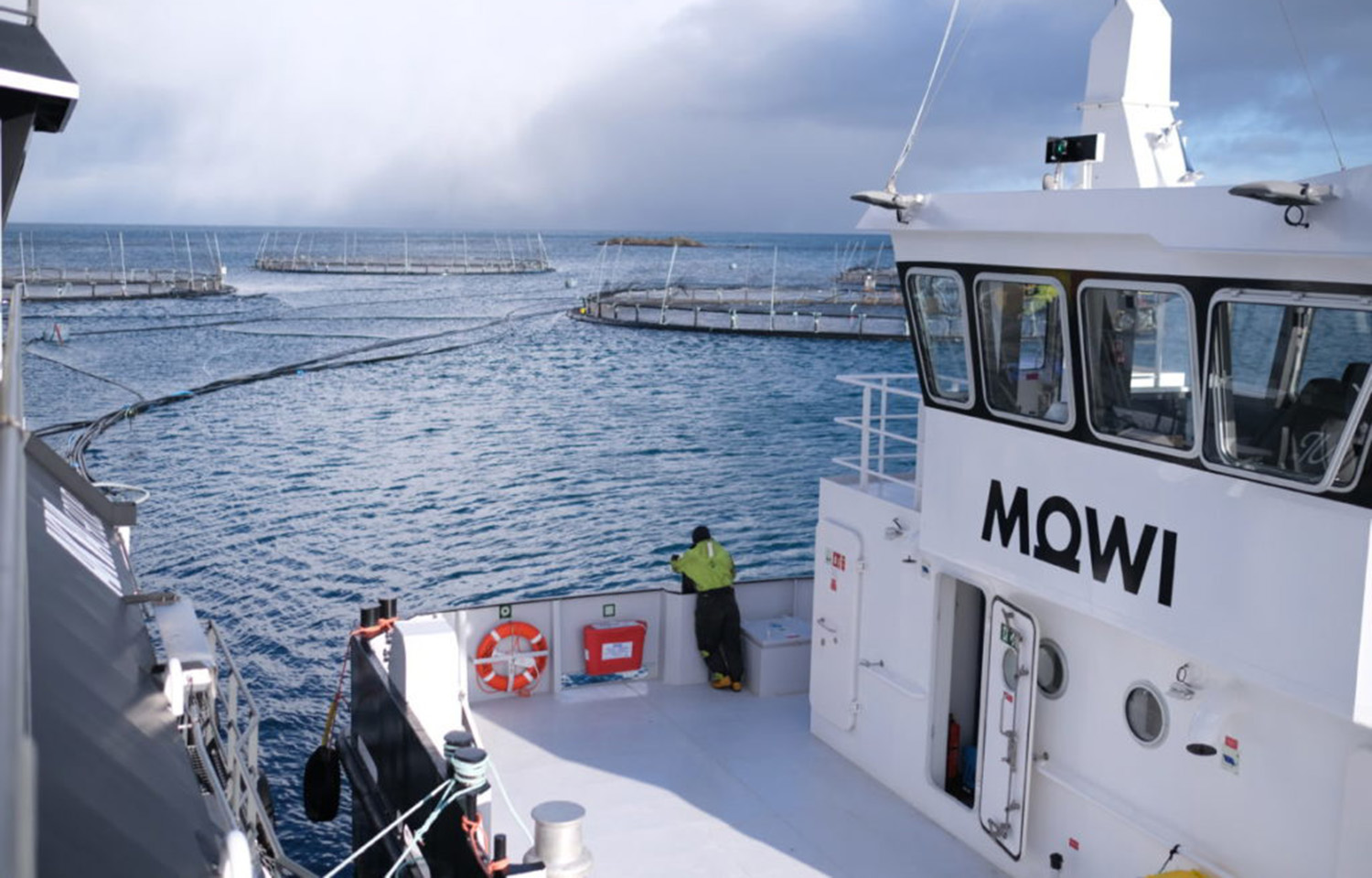Mowi Scotland faced significant biological challenges in Q4 2023, impacting the company’s financial performance.
In response, the company is aiming to implement new measures that directly address these ongoing environmental problems, according to the company’s CEO Ivan Vindheim.
Delivering Bergen, Norway-headquartered Mowi ASA’s fourth-quarter 2024 results in Oslo on 14 February, Vindheim confirmed Mowi Scotland’s operations had experienced unusually high mortality levels in the period.
“The fourth quarter started off with a very challenging biological October for Mowi Scotland due to seasonally poor water quality, compounded by the El Niño weather phenomenon and record-high seawater temperatures in its wake – causing severe gill issues and elevated mortalities at some of our farms,” he said, adding that these “unfortunately lingered on” in November and part of the way through December.
At the same time, Mowi harvested a minimal volume in Scotland in the quarter, with the intention of securing its volume guidance for this year.
“That will enable us to leverage on an expected improved market in the first half of the year as we saw last year,” Vindheim said.
Mowi Scotland’s Q4 2023 operational earnings before interest and taxes (EBIT), therefore, came in “on the weak side” at EUR -1.1 million (USD -1.2 million), as did its harvest volumes at 10,568 metric tons (MT), which was down 7,500 MT on the company’s original forecast.
Vindheim said the region’s biology showed improvement toward the end of the quarter, in line with lower seawater temperatures and improved water quality. The positive trend has continued into 2024, with mortality levels and production rates “now back to normal” in Scotland.
“This should pave the way for improved biological and financial metrics in the coming months,” he said.
Nevertheless, Mowi has seen “increasingly challenging environmental conditions” in the past few years, including rising seawater temperatures – compounded last year by El Niño. Vindheim said these problems call for more robust salmon and shorter at-sea production cycles.
With this in mind, the company, which is Scotland’s largest salmon producer, acquired Dawnfresh’s trout-farming sites out of bankruptcy administration in February 2023 as a first step into Scottish post-smolt production, centered around Loch Etive – the largest brackish-water loch in Scotland.
Mowi received approval to begin post-smolt production in December and said its first batch of 2.6 million fish are about to be put to sea. The next batch will be transferred in October, giving the company an annual post-smolt production capacity of 6.6 million, equating to a coverage of 30 percent of its Scottish smolt requirements.
All this has come at “a very decent price,” Vindheim said. “[It’s] half the capex of doing it on land, not to mention a much quicker realization time with lower running production costs.”
Vindheim said another key element to Mowi’s biological turnaround plan for Scotland is to become 100 percent self-sufficient in sourcing its salmon eggs. The company has received all necessary permitting for its planned broodstock and egg-production facility at Ardessie in northern Scotland and has commenced construction, with the goal of completing the project in 2025.
Following on from its total harvest of around 54,900 MT for full-year 2023, Mowi Scotland’s Q1 2024 guidance is for a harvest of 14,000 MT, contributing to an annual estimated total of 64,000 MT for 2024.
Mowi Scotland is also actively looking to secure new farming locations to support further growth and has secured approval for a new site in Kilbrannan Sound with a maximum allowable biomass (MAB) of 2,450 MT.
Similarly to Scotland, Arctic Fish in Iceland – the most recent addition to the Mowi family – also endured a challenging end to 2023, particularly in regard to sea lice problems. Arctic Fish posted a harvest of 2,529 MT and an operational EBIT of EUR 3.2 million (USD 3.4 million) in Q4 2023, with a corresponding margin of EUR 1.28 (USD 1.37) per kilogram.
“We have, however, entered calmer waters in Iceland, with good biology, low mortality, and reasonably good growth given the prevailing seawater temperatures,” Vindheim said. “Our clear goal for 2024 is to establish a streamlined and profitable operation in Iceland.”
Mowi has issued guidance of 2,500 MT for its Icelandic harvest in Q1 2024 and 10,000 MT for full-year 2024.
Photo courtesy of Mowi







